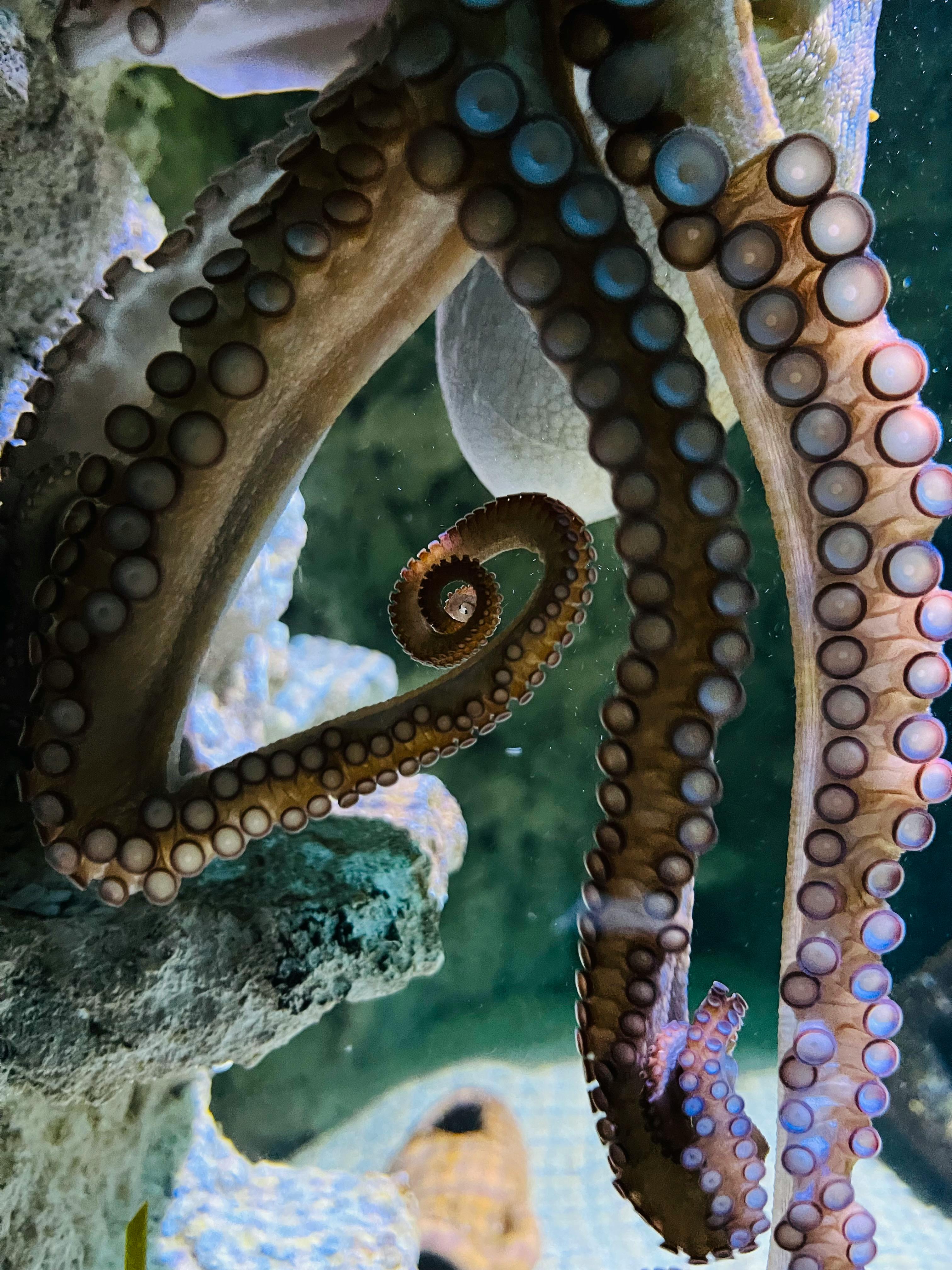The Surprising Intelligence of Cephalopods: Octopus Problem-Solving Skills
Cephalopods, particularly octopuses, have long fascinated marine biologists and animal behaviorists with their remarkable cognitive abilities. These eight-armed invertebrates possess a level of intelligence that challenges our understanding of animal cognition. In this article, we'll dive deep into the world of octopus problem-solving skills, exploring their unique neurological structure, impressive learning capabilities, and the implications for our understanding of intelligence in the animal kingdom.

The Unique Neurological Structure of Octopuses
Octopuses possess a fascinating neurological structure that sets them apart from other invertebrates. Unlike most animals, which have a centralized nervous system, octopuses have a distributed network of neurons throughout their body. While they do have a central brain, roughly two-thirds of their neurons are located in their arms, giving each appendage a remarkable degree of autonomy and processing power.
This decentralized nervous system allows octopuses to process information and respond to stimuli with incredible speed and efficiency. Each arm can independently sense, react, and even make decisions, contributing to the octopus’s overall problem-solving abilities. This unique neurological arrangement enables octopuses to multitask effectively, solving multiple problems simultaneously or approaching a single challenge from various angles.
Observational Learning and Memory
One of the most impressive aspects of octopus intelligence is their capacity for observational learning and memory retention. Studies have shown that octopuses can learn complex tasks by watching others perform them, a skill previously thought to be limited to more advanced vertebrates.
In one notable experiment, researchers demonstrated that octopuses could learn to open a screw-top jar containing food simply by observing another octopus complete the task. This ability to learn through observation suggests a level of cognitive sophistication that challenges our traditional understanding of invertebrate intelligence.
Moreover, octopuses exhibit remarkable short-term and long-term memory capabilities. They can remember the solutions to puzzles for months, even after encountering them only once. This memory retention allows them to apply learned skills to new situations, showcasing their ability to adapt and problem-solve in diverse environments.
Tool Use and Manipulation
Perhaps one of the most striking demonstrations of octopus intelligence is their ability to use tools. While tool use was once considered a hallmark of higher vertebrate intelligence, octopuses have been observed employing various objects to achieve their goals.
In the wild, octopuses have been seen using coconut shells as portable shelters, carrying them along the ocean floor for protection. In captivity, they’ve demonstrated even more sophisticated tool use, such as using water jets to manipulate objects out of reach or fashioning improvised tools from available materials to solve puzzles.
This capacity for tool use not only showcases their problem-solving abilities but also highlights their creativity and adaptability in overcoming challenges. The ability to identify and utilize objects in their environment as tools represents a level of cognitive flexibility rarely seen in invertebrates.
Escape Artistry and Spatial Reasoning
Octopuses are renowned for their escapology skills, often finding ingenious ways to break out of aquariums and enclosures. These escape attempts demonstrate not only their physical dexterity but also their advanced spatial reasoning and problem-solving abilities.
Researchers have documented numerous instances of octopuses squeezing through impossibly small openings, manipulating complex locking mechanisms, and even traversing short distances over dry land to reach new bodies of water. These feats require a sophisticated understanding of their own bodies, their environment, and the obstacles they face.
The spatial reasoning skills displayed during these escapes suggest that octopuses possess a form of mental mapping, allowing them to plan and execute complex sequences of actions to achieve their goals. This level of cognitive processing is typically associated with much more evolutionarily advanced species.
Implications for Our Understanding of Intelligence
The remarkable problem-solving abilities of octopuses have profound implications for our understanding of intelligence in the animal kingdom. Their cognitive capabilities challenge traditional notions of invertebrate intelligence and raise intriguing questions about the evolution of cognition.
The octopus’s distributed nervous system and advanced problem-solving skills suggest that there may be multiple evolutionary paths to intelligence. This insight could revolutionize our approach to artificial intelligence and robotics, inspiring new designs based on decentralized processing systems.
Furthermore, the study of octopus intelligence highlights the importance of considering diverse forms of cognition when assessing animal intelligence. It reminds us that intelligence can manifest in various ways, adapted to different environmental pressures and evolutionary histories.
As we continue to unravel the mysteries of octopus cognition, we gain not only a deeper appreciation for these fascinating creatures but also new perspectives on the nature of intelligence itself. The problem-solving prowess of octopuses serves as a humbling reminder of the complex and varied forms of cognition that exist in the animal kingdom, encouraging us to broaden our understanding of what it means to be intelligent.






